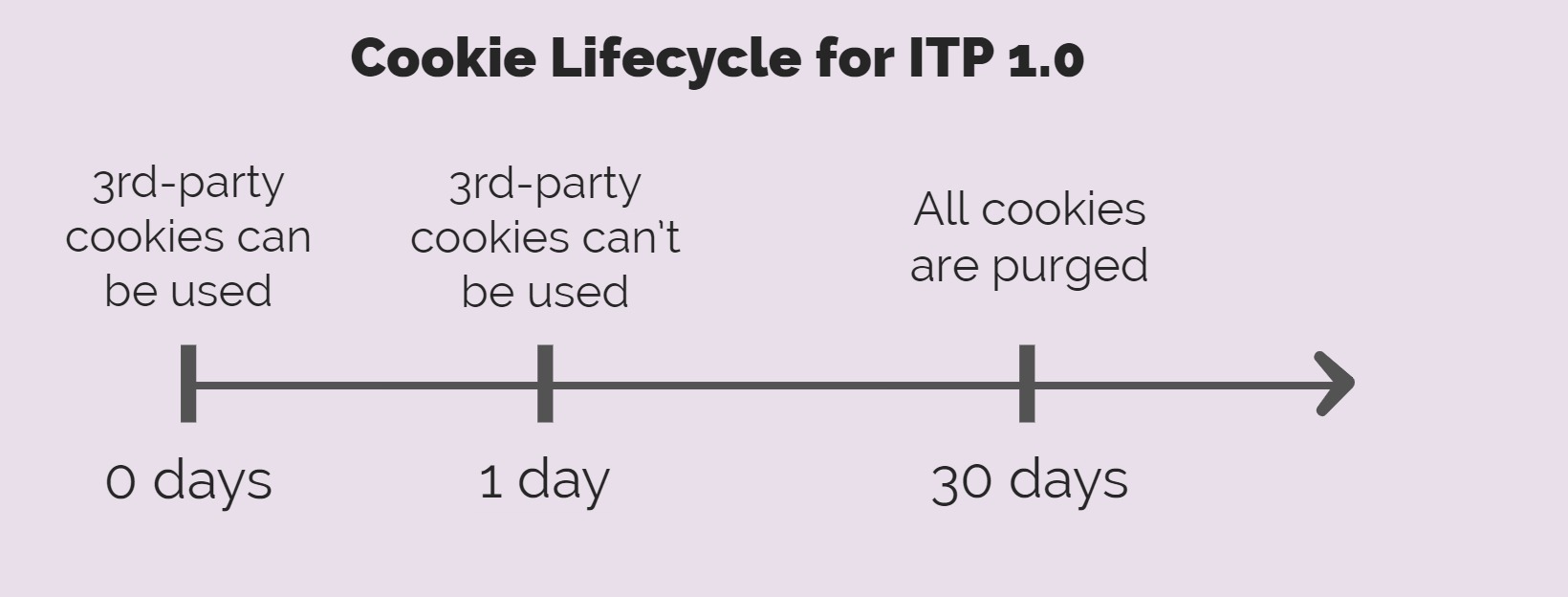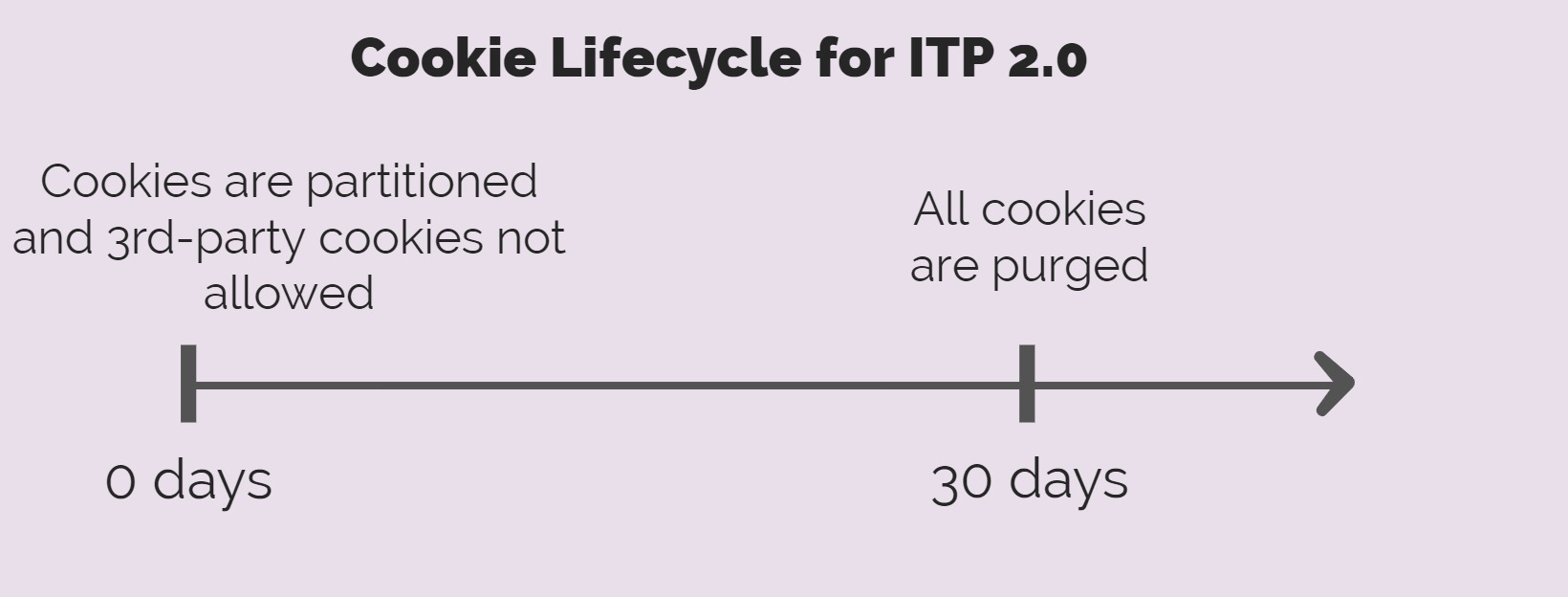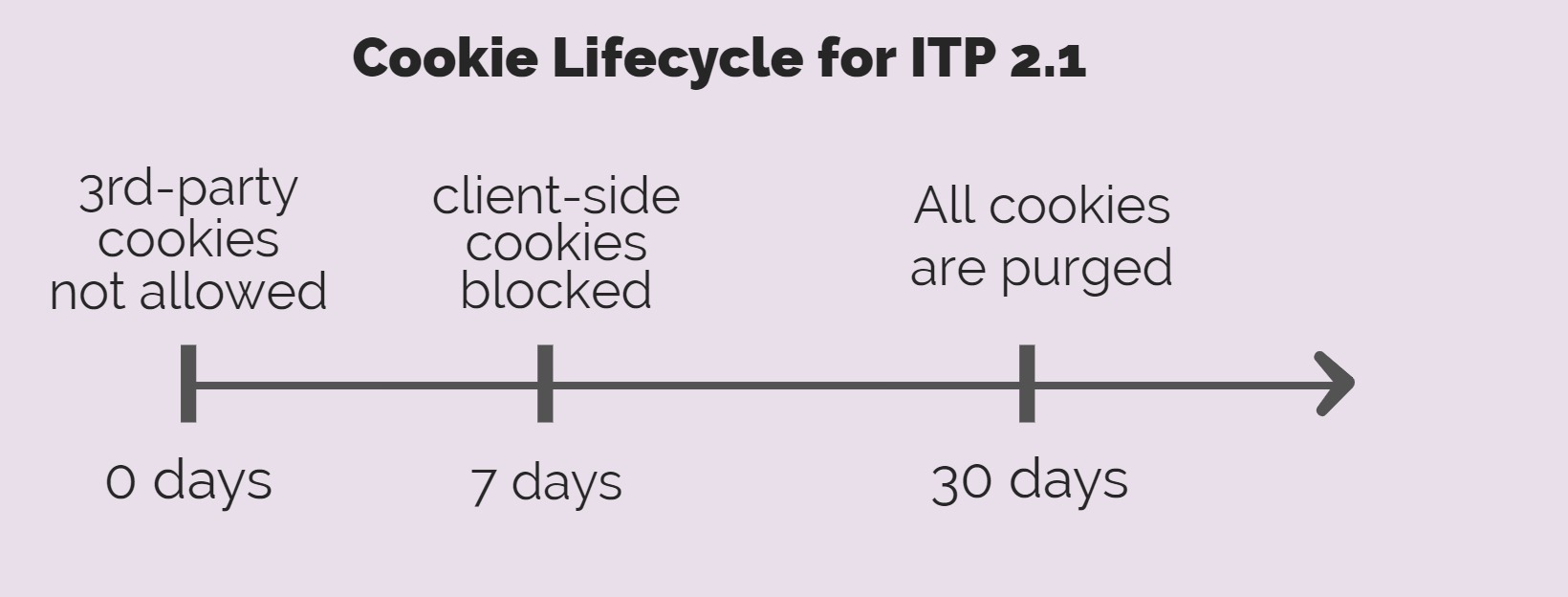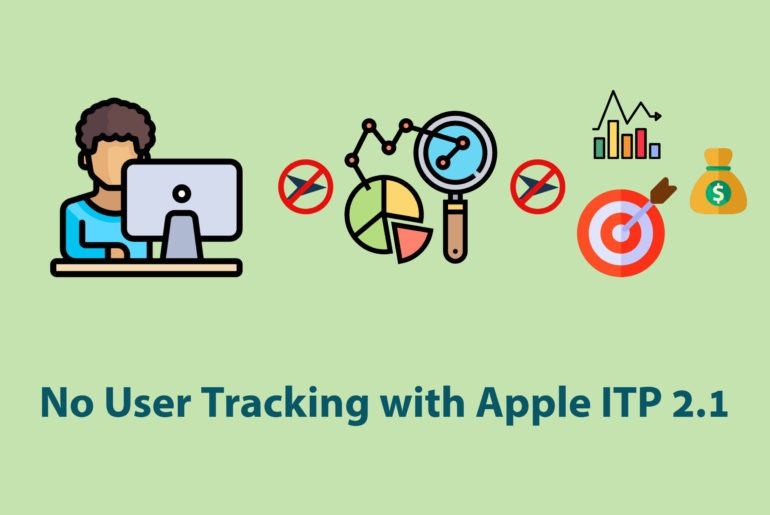Apple has announced to launch a new version of ITP 2.1 by end of this month (March). This time, it will be affecting both first-party cookies and third-party cookies.
In the year 2017, Apple first released ITP aka Intelligent Tracking Prevention for the Safari browser. With ITP 1.0, Safari wanted to prevent third-party cookies from tracking users across different sites. And now, we have ITP 2.1 coming soon to strengthen that protection against user tracking.
So, What is Apple ITP?
ITP or Intelligent Tracking Prevention is a new feature added to the Safari browser that restricts user tracking using cookies. Meaning, ITP limits publishers and advertisers to track users across domains.
The initial model (ITP 1.0) is simple where cookies are allowed to be used in third-party context for 24 hours. After that, the cookies reside in the browser for 30 days. In case if the user doesn’t interact with that domain in 30 days, the cookies will be purged.

But why 24 hours? Mostly because the user might need the third-party context while using services on website‒for example, logging in to a service/platform using Google or Facebook account.
However, if user visits the domain again in between 30 days, the cookies will be refreshed and another 30-day cycle will start.
Then What Is the New ITP 2.1 About?
In June 2018, Apple released ITP 2.0 and it removed the 24-hour cookie access window. This was because the ad industry had come up with multiple turnarounds like storing third-party cookies as first-party cookies. Due to tracking prevention, publishers and advertisers were unable to track and target users with Safari browsers. Hence, to avert such practices, Safari was updated with ITP 2.0.

This is the ITP 2.0 model where third-party cookies are not allowed, and first-party cookies reside for 30 days.
However,ad tech still continued with practices to find ways to track the user. In response to this, Apple is releasing ITP 2.1 which will affect both first-party and third-party cookies.
This what the ITP 2.1 model looks like:

In a nutshell, with ITP 2.0, third-party cookies are blocked entirely. However, first-party cookies are also limited from tracking cross-domain data of users. Also, client-side cookies are capped to 7 days of storage.
Storage Access API must be used, even if used for things like login management. The main purpose of this change is to reduce the amount of data stored using session cookies for any given site.
Remember, with ITP 2.1, Apple wants to prevent user tracking (not blocking of the cookies). Hence, the name is ‘Intelligent Tracking Prevention’ (not ‘Intelligent Cookies Prevention’).

How Does ITP 2.1 Affect The Ad Industry?
According to Stetic, 30% people (approx) use Safari browser, worldwide. This means, publishers are unable to track these 30% people which directly affect the ad targeting strategies. Furthermore, Firefox is also known to block third-party cookies.
Image Source: Stetic
With Safari and Firefox combined, there are 45% users (approximately) hidden to publishers. Once ITP 2.1 will be in action, publisher won’t be able to track the Safari users with efficiency. This can ultimately affect the ad targeting and further reducing the market value of their inventory.
Also, publishers might see a huge surge in unique visitors. This is because the analytics tool might be counting one user as two unique users if he/she accesses the domain after a gap of 7 days.
“Previously, a Google Analytics cookies would, in theory, last for two years; it will now be deleted by Safari after seven days. That could drastically inflate the number of unique visitors that brands and advertisers see in their figures” said Sam Vining, head of data and consultancy at iCrossing.
It’s going to affect the entire ad tech ecosystem‒publishers, marketers, and vendors. Industry is now needed to adjust according to the fact that user tracking is restricted. However, it’s likely that someone will find out a turnaround again for ITP 2.1.
And in response to that, Apple will launch another update to counter that turnaround. As mentioned by Ratko Vidakovic, founder of AdProfs, “Given Apple’s aggressive attitude towards this issue, it seems like the idea of persistent cookies in Safari, for cross-site tracking purposes, will eventually be a thing of the past”.

Shubham is a digital marketer with rich experience working in the advertisement technology industry. He has vast experience in the programmatic industry, driving business strategy and scaling functions including but not limited to growth and marketing, Operations, process optimization, and Sales.







